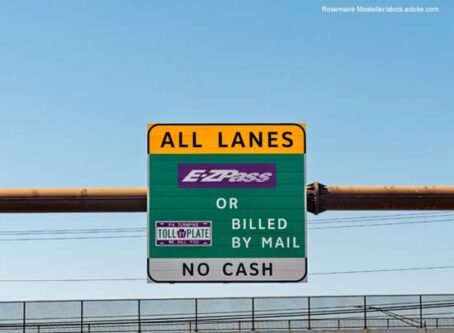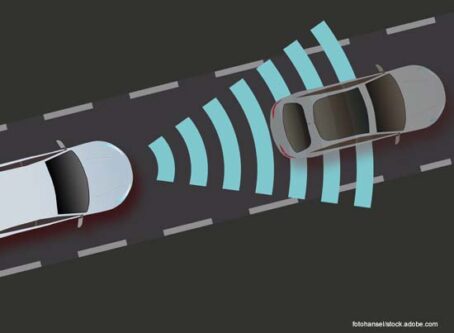States take steps to end ticket quotas
Statehouse activity in at least a half dozen states address changes intended to put an end to practices that force law enforcement officers to partake in ticket quotas.
Communities nationwide are able to generate revenue from different types of fines. In certain locales, fines account for a disproportionate amount of local revenues. These municipalities are known for being speed traps.
The National Motorists Association says that “a speed trap exists wherever traffic enforcement is focused on extracting revenue from drivers instead of improving safety.”
According to figures compiled by Governing magazine, there are about 600 jurisdictions around the country where fines and forfeitures account for more than 10% of general fund revenues. There are 80 where the share exceeded 50%.
About 20 states have acted to discourage practices that pressure law enforcement officers to write tickets.
State legislators all over the map have taken up for consideration rules aimed to eliminate potential abuses.
Alabama
In Alabama, a House bill was intended to prevent ticketing abuses.
HB129 would prohibit state and local law enforcement agencies from establishing ticket quotas.
Agencies would also be forbidden from providing incentives or rewards for issuing traffic tickets.
The bill did not advance from committee.
Maryland
In bordering Maryland, a House bill addresses concern about quotas.
Sponsored by Delegate Robin Grammer, R-Baltimore, HB666 would prohibit using ticket quotas for promotion, demotion, dismissal and transfer of an officer.
Law enforcement agencies would be forbidden from requesting or directing an officer to issue more citations or arrests.
The bill is in the House Judiciary Committee.
Michigan
Legislation in Michigan would revise the state’s rule on issuing citations.
Since 2010, Michigan law prohibits a police officer from being required to issue a certain number of citations for traffic offenses.
According to a legislative analysis at the time, even though police departments were generally prohibited from requiring officers to write a specified number of tickets, there were reports about departments that engaged in related practices. Examples included offering prizes to the officer who writes the most tickets in a time period or withholding promotions from officers who issue few tickets.
The 2010 law attempted to address concerns about ticket quota abuse. However, an exception provided in the law authorizes ticket numbers to be used as part of a police officer’s evaluation system.
The lone requirement for inclusion of the ticket writing component is that the issuance of citations is not given any greater consideration than any other factor in the evaluation of an officer’s performance.
Sen. Jeff Irwin, D-Ann Arbor, is behind a bill to prohibit a police officer’s performance evaluation from including any consideration of citations issued.
The bill, SB599, is in the Senate Judiciary and Public Safety Committee. A similar House bill, HB5723, is in the House Government Operations Committee.
Meanwhile, legislation addressing the ticket-quotas issue in two statehouses has died.
Mississippi
For the third year in a row, pursuit in the Mississippi statehouse called for prohibiting any law enforcement agency from establishing a policy that requires officers to meet ticket quotas.
A year ago, House lawmakers voted in favor of the pursuit. The bill died in the Senate.
This year’s version, did not advance from committee. HB802 sought to forbid the number of arrests or citations issued by an officer from being the sole criteria for a promotion, demotion, or dismissal.
Arrests or citations issued could be considered when evaluating overall performance.
New York
In New York, bills in both chambers also cover the issue.
The Empire State prohibits an employer from transferring or penalizing a police officer for failure to meet an established ticket quota.
Sen. Elijah Reichlin-Melnick, D-Nanuet points out it is possible, however, that an employer could deny a promotion to a police officer who fails to meet a quota.
“Penalties should always be used as a means to an end – incentivizing compliance – and should never come to be viewed as a guaranteed source of revenue,” Reichlin-Melnick wrote in a bill memo.
A1187/S8259 would outlaw state agencies from imposing or suggesting any enforcement quota. Agencies would be forbidden from using ticketing numbers as the primary criteria to evaluate officers.
Ticketing numbers could not be used to reward performance nor be used to transfer, reassign, dismiss, or deny a promotion.
The bills await committee consideration.
Virginia
The two chambers of the Virginia General Assembly have unanimously approved legislation to prohibit law enforcement agencies from setting a target ticket quotas.
SB327/HB750 would prohibit agencies from using the number of arrests or citations issued by an officer from being the sole criteria in officer evaluation.
The rule would apply to the State Police, sheriff’s departments, and local police.
During a Senate committee hearing, at least one committee member expressed surprise that quotas exist in Virginia.
“You used to hear about these all the time many, many, many, many years ago. I thought that was pretty much something that is done away with,” said Sen. Dick Saslaw, D-Fairfax. “You’re saying it still exists?”
Sen. Bryce Reeves, R-Spotsylvania, said that some departments within the state continue to have quotas.
“We just want to put an end to it,” Reeves said.
More state trends
Keith Goble, state legislative editor for Land Line Media, keeps track of many trends among statehouses across the U.S. Here are some recent articles by him.









